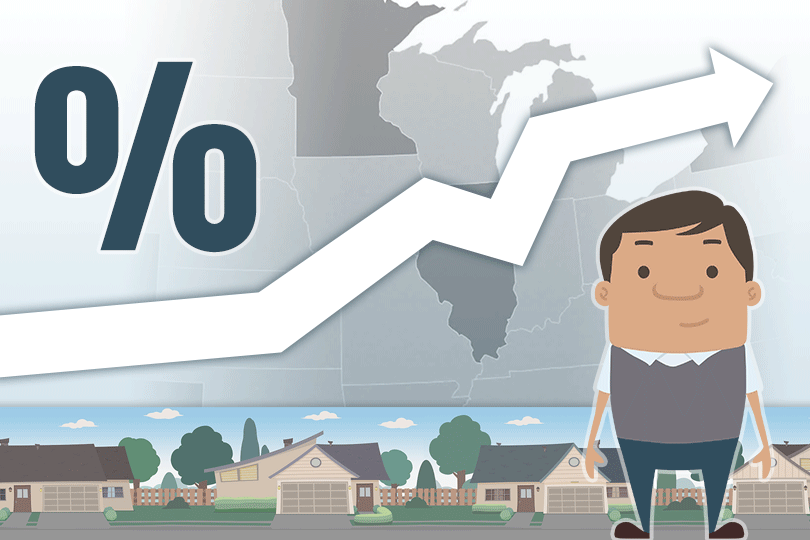Challenges of Buying a Home with High FHA Loan Interest Rates
July 2, 2023
The Impact of High FHA Loan Interest Rates
- Increased Monthly Payments
High FHA loan interest rates result in higher monthly mortgage payments. This can strain your budget and may limit your ability to afford a home that meets your needs and preferences. - Long-Term Cost
Over the life of your mortgage, the impact of high interest rates can be substantial. You'll end up paying significantly more for your home compared to someone with a lower interest rate. - Reduced Buying Power
High interest rates can limit your buying power, meaning you might not be able to afford the same home or neighborhood you initially had in mind.
Strategies for Dealing with High FHA Loan Interest Rates
- Improve Your Credit Score
One way to secure a more favorable FHA loan interest rate is by improving your credit score. This can be achieved by paying down existing debts, correcting errors on your credit report, and demonstrating responsible financial behavior over time. - Shop Around
Don't settle for the first FHA lender you encounter. Shop around and compare offers from multiple lenders. Interest rates can vary significantly between lenders, and a little extra effort can yield substantial savings. - Consider Other Loan Options
While FHA loans are a popular choice, they are not the only option available. Explore conventional loans, USDA loans, or VA loans if you qualify, as they may offer more competitive interest rates. - Make a Larger Down Payment
Increasing your down payment can help mitigate the impact of high interest rates. It reduces the amount you need to borrow, resulting in lower monthly payments and less interest paid over time. - Lock in Your Rate
When you find an FHA loan with an interest rate you're comfortable with, consider locking in that rate. This protects you from rate increases during the application process. - Refinance When Possible
Once you've secured your FHA loan, monitor the market for opportunities to refinance when interest rates are more favorable. Refinancing can help you reduce your interest rate and lower your monthly payments.
RELATED VIDEOS:
Annual Income Requirements for FHA Loans
Good Credit History Helps Get FHA Loans
Stay Informed About Your Mortgage Closing Costs

FHA Loan Articles
December 10, 2024The FHA announced increased loan limits for 2025, providing those seeking FHA-insured mortgages after January 1st with increased purchasing power. In this article, we explore the key aspects of these limits and their implications for your homeownership goals.
When you are approved for an FHA-insured loan, the FHA guarantees a portion of the loan to the lender, lowering lender risk...
December 9, 2024The Federal Housing Administration (FHA) helps people buy homes, especially those buying for the first time or who might not have perfect credit. In 2025, there is good news for FHA borrowers. FHA home loan limits are going up.
In most places, the FHA loan limit for a single-family home in 2025 is $524,225. This is more than it was in 2024. However, in expensive areas, where houses cost more, the limit can be as high as $1,209,750.
December 5, 2024The Federal Housing Administration (FHA) has some ground rules regarding cash-out refinances. These rules are designed to protect both you and the lender, ensuring you have enough ownership of your home and reducing the risk of foreclosure. How long must you own your home before you can apply for FHA cash-out refinancing?
December 4, 2024When you think about owning a farm, do you dream of vast landscapes and thriving agricultural enterprises? Or are you looking for a quaint farm-style house to live in but not necessarily to start a new farming career?
Borrowers who want to buy a farm residence are in luck with the FHA loan program, which includes options to purchase farm residences.
November 27, 2024If you are new to the home loan process, you may wonder how your loan officer will interpret your application data. How lenient is the lender with issues related to debt, credit utilization, and related factors? We examine some key points, but remember that what follows is not financial advice. Always consult a finance or tax professional for the most current information.







